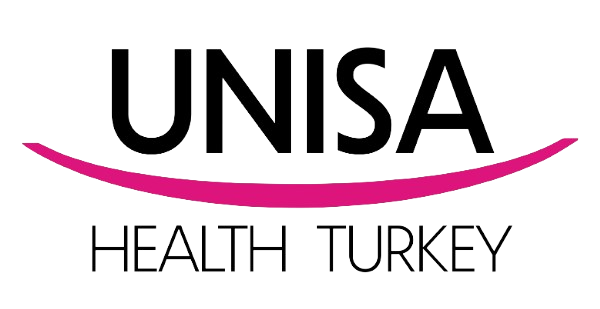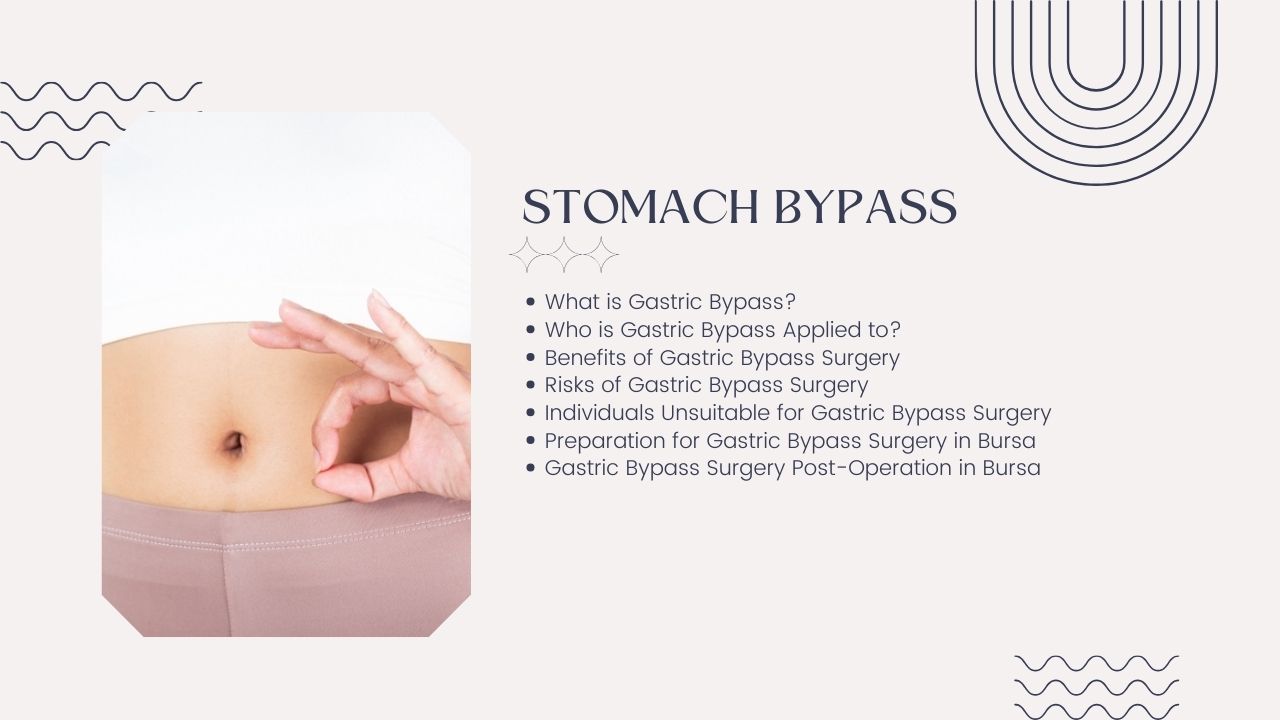Hello,
How Can We Help You?
Contact Form
Fill in the form and we will contact you as quickly as possible.
Contact us on Whatsapp
Scan with your camera app or click the QR code to start a conversation.


Obesity is one of the most widespread health problems of our time. Excess weight is not only an aesthetic concern but also increases the risk of many health issues. Gastric bypass surgery is an effective surgical solution in combating obesity. At Unisa Health, we perform gastric bypass surgery safely and comfortably with our experienced surgeons and modern facilities.
Gastric bypass surgery is a surgical procedure that limits the function of the stomach by connecting a portion of the small intestine directly to the stomach. This allows the individual to consume less food and absorb more calories. Gastric bypass surgery is performed in two main types:
Roux-en-Y Gastric Bypass: This is the most common type of gastric bypass. In this procedure, the upper part of the stomach is separated into a small pouch, and the lower part of the small intestine is directly connected to this pouch. The remaining parts of the stomach and small intestine are not connected.
Biliopancreatic Diversion with Gastric Bypass: In this procedure, a portion of the stomach and small intestine is separated, and the lower part of the small intestine is directly connected to the lower part of the stomach. The remaining parts of the stomach and small intestine are connected to each other.
Gastric bypass surgery can be applied to individuals who meet specific criteria. Firstly, individuals with a body mass index (BMI) of 40 or above are direct candidates for gastric bypass surgery. Those with a BMI between 35 and 39.9 may also be considered for gastric bypass surgery if they are within this range and also suffer from obesity-related health issues such as diabetes, hypertension, or sleep apnea. Additionally, individuals who have tried other weight loss methods but have not succeeded are suitable candidates for gastric bypass surgery. These individuals, despite efforts such as diet, exercise, and medication, have not achieved the desired results. Finally, before gastric bypass surgery, the patient's overall health is evaluated, and any health issues that could be a hindrance to surgery are checked. It is crucial for the patient to be healthy before surgery and for the surgery to be performed safely. Patients evaluated according to these criteria may be accepted as suitable candidates for gastric bypass surgery.

Gastric bypass surgery has many benefits. Some of these include:
Gastric bypass surgery helps individuals lose a significant amount of weight. Patients typically lose about 70% of their body weight in the first year after surgery.
Gastric bypass surgery is effective in treating or preventing obesity-related health problems such as diabetes, hypertension, sleep apnea, and heart disease.
Gastric bypass surgery provides many benefits such as having more energy, moving more comfortably, and feeling more confident.

Although gastric bypass surgery is an effective surgical method used for obesity treatment, it may entail some risks. One of these risks is temporary hair loss in some patients after surgery. Additionally, new connections may form between the stomach and small intestine after gastric bypass, leading to the development of internal hernias. Jaundice due to the accumulation of bile in the liver is also a rare complication. Some patients may develop stomach ulcers after gastric bypass surgery, and the risk of blood clotting may increase. The condition of blood clotting can lead to serious health problems, especially conditions such as pulmonary embolism or brain hemorrhage. However, death cases after gastric bypass surgery are very rare. It is crucial for patients to be informed in detail about these risks and potential complications before surgery and to understand the potential risks of surgery. Following the doctor's recommendations during the pre-operative evaluation and preparation process can help minimize these risks.
Individuals Unsuitable for Gastric Bypass Surgery
Gastric bypass surgery is not performed on individuals who do not meet specific conditions. Firstly, pregnant or breastfeeding women are not suitable candidates for gastric bypass surgery because surgical intervention during this period can increase the risks and harm the baby. Additionally, individuals with severe diabetes or heart disease have a higher risk of complications during surgery, so these types of patients are generally not among suitable candidates for gastric bypass. The use of blood thinners in individuals can increase the risk of bleeding during surgery, so the use of these medications may need to be stopped before surgery following the doctor's instructions. Individuals with malignant tumors in the stomach or intestines must first complete tumor treatment and achieve stability; therefore, they are not considered suitable candidates for gastric bypass surgery. Finally, since significant changes in lifestyle will be required after gastric bypass surgery, it is important for the patient to be psychologically and socially capable of coping with these changes. Considering these criteria, it is important for patients to undergo a detailed evaluation before gastric bypass surgery to determine the suitability of the surgery.
Contact Form
Fill in the form and we will contact you as quickly as possible.
Contact us on Whatsapp
Scan with your camera app or click the QR code to start a conversation.